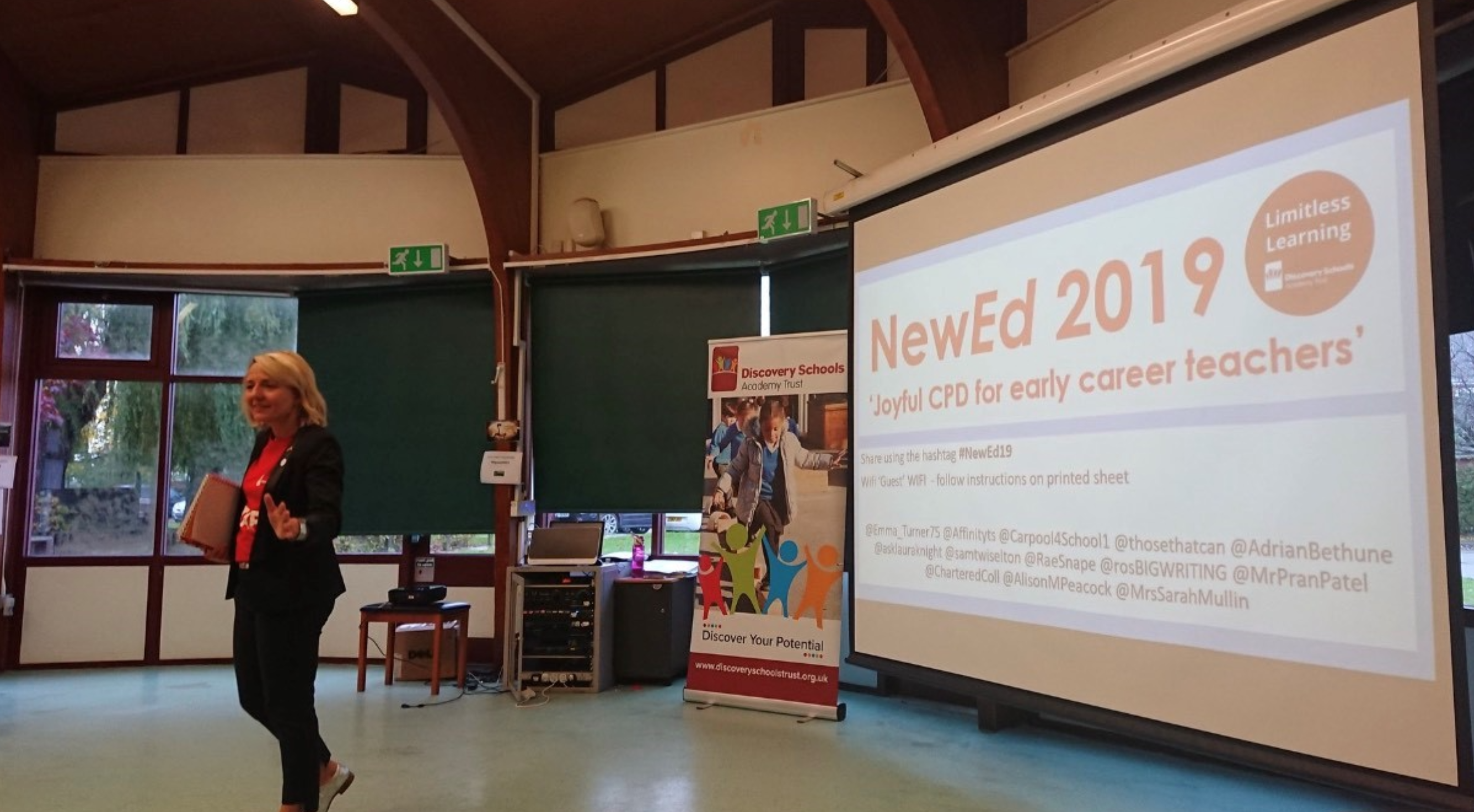
Having specialised in writing and delivering CPD for hundreds of NQTs over the past two decades, Emma Turner has seen the ups and downs they face in their first term on the job. She works part time as Research and CPD Lead for Discovery Schools Academy Trust MAT in Leicestershire and has run 2 #NewEd events for early-career teachers.
Congratulations and welcome to the best job in the world! To help you get off on the right foot, I wanted to give you some hints, tips, and information to consider before you begin your new adventure with your own students.
- Ensure you know the child protection/safeguarding policies in your school.
I often ask my NQT cohorts what is the most important question they should ask before the first day and I always get a huge range of responses. However, the most important question is, “What do I do if I have a concern about the safety or welfare of a child?”. Our first duty in school is to keep children safe, and child protection is important from the moment you step onto the school site. Ensure you know as soon as possible who to report any concerns to and exactly how these should be recorded. This is one area where you definitely shouldn’t be afraid to ask for clarification or for things to be explained multiple times.
- Comparison is the thief of joy
This is so true in teaching. There will always be someone who appears more organised, more knowledgeable, better able to produce more engaging and effective lessons. This can be multiplied a thousand-fold if you follow other teachers on social media. Remember that you have your own targets, your own class with their unique needs, and that you are doing the best you can.
By all means, speak to colleagues about how they achieve what they do and consider how you can improve by integrating elements of the best practice of others. But remember that teaching is not a competition. Do what works best for you and your class and share your own successes. Oh, and social media? Well, you wouldn’t take pictures of your house for RightMove on the day the lounge was a tip and you hadn’t cleaned the bathroom; it’s the same with a lot of online content – it’s been plumped and polished but you can bet there’s a pile of disorganised paperwork, a lost plimsoll and 80 unanswered emails just out of shot.
- Know your personal targets
Knowing where to focus your efforts is so important. Having a really clear idea of which areas of your practice you need to hone and refine is one of the keys to feeling as if you are making progress and not feeling as if you have to spin every pedagogical plate. Regular check-ins with your induction tutor/mentor should include discussion of which areas you are focusing on and help to keep your workload manageable and streamlined. If you feel you need additional support to achieve these then ensure that this conversation also forms part of regular meetings.
- Find or build a network
If you’re lucky enough to work in a school or trust which already has an NQT network, then do take advantage of it. Discussing your practice and concerns, and also celebrating with colleagues in the same boat is so important. If you don’t have an NQT network, then hop onto social media (I love Twitter) where there are support groups for NQTs and most subjects or year groups. Following #NewEd or #NewED2 will bring up lots of early career teachers as well as expert early career mentors. Alongside colleagues at the same or similar career stage, make sure you build networks that include educators from complementary key stages, phases, or subjects in order to get a well-rounded overall picture of the sector. There are so many extremely generous educators who really enjoy supporting new entrants to our profession, so don’t be shy.
- Look after yourself
It’s so easy to become consumed by work in your NQT year. Every day brings something new. This puts huge physical, emotional, and cognitive demands on us so make sure you prioritise yourself. If workload is becoming an issue, speak up early via your induction tutor/mentor and go through your “to do” list to see if there’s anything you can move to the “to don’t” list.
Also make sure that you eat and sleep well and do something for yourself outside work. Put immovable positive things in your diary like a walk with friends, a family get-together, or tickets to something. Don’t forget you need to bring your whole self to the job and no student wants to hear that all you did at the weekend is fill in paperwork or plan lessons. Don’t kid yourself you can survive on fresh air, caffeine and staff room cake either. Whether it’s slow cooking, healthy food delivery boxes or just a bag of apples in your classroom, make sure you’re eating enough of the right stuff.
Remember that we’re all in it together. Teaching really is a family and you’re never truly on your own with anything. Speak up early, ask for help and enjoy your first year.

Looking for more support and information for NQTs?
The Department for Education has published guidance for schools and NQTs preparing for their induction in September 2020 in the context of the COVID-19 outbreak. The guidance contains information on support available, research and tips to help both NQTs and their schools. You can access the guidance on GOV.UK.
Want to receive blog posts in your inbox?